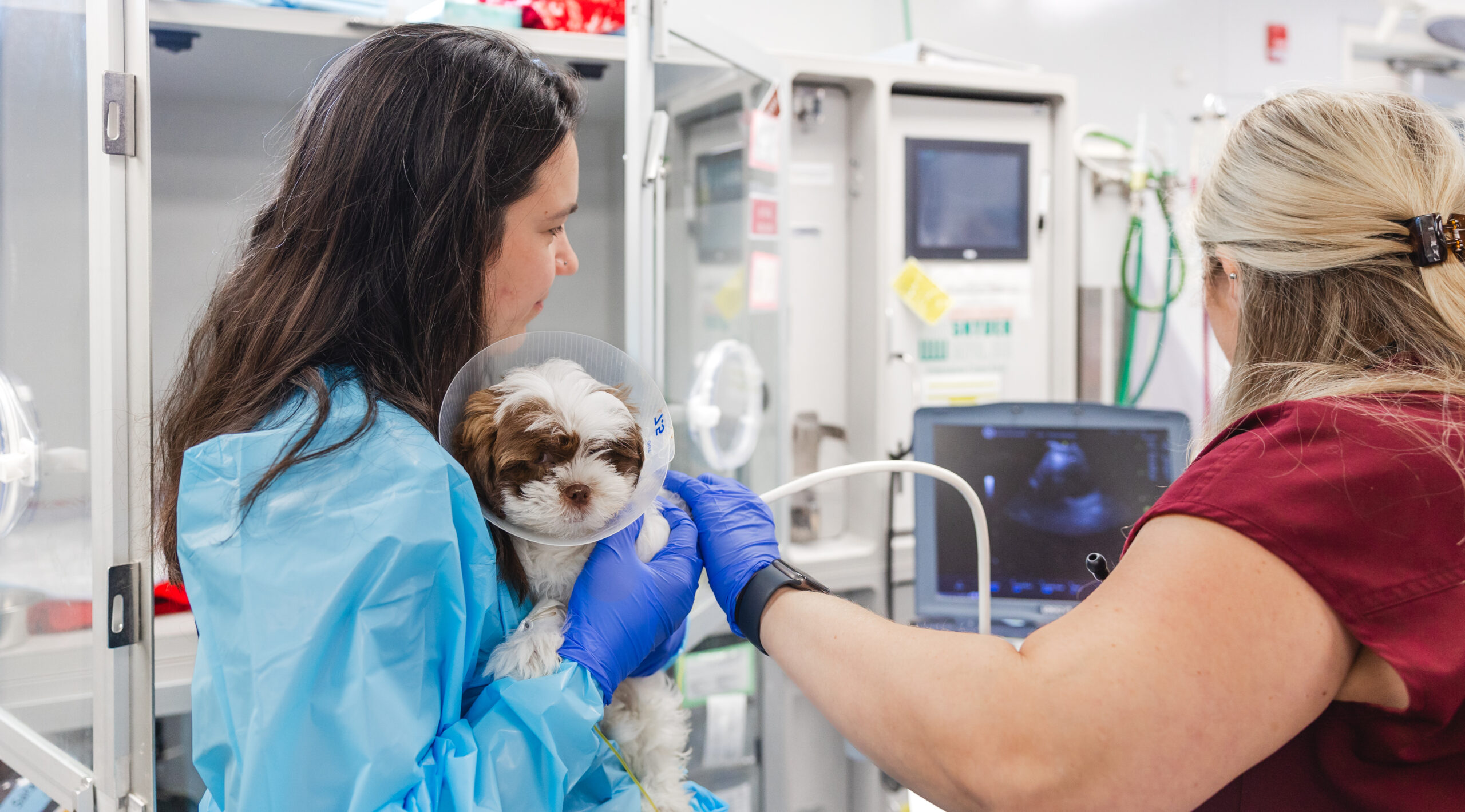Veterinary Emergency & Critical Care
in Scarborough, ME

Veterinary Emergency & Critical Care
The Emergency & Critical Care team at MVMC is committed to the intensive and emergent care of your pets. This may require the balance of triage and starting life-saving therapy or continued intensive care in our ICU. We currently have five criticalists on staff, providing critical care support to our hospital seven days a week. Our criticalists often consult with your family veterinarian, emergency veterinarians, and other specialists on complex cases. When your pet comes in for an emergency, the whole team joins together to ensure that your pet is receiving the best possible care. The Emergency & Critical Care department at MVMC is run similarly to a human emergency room, meaning the team will triage each patient and treat the most critical first. If your pet needs critical care, those treatments may include oxygen administration, IV fluid therapy, transfusion therapy, surgery, and pain control, to name only a few – and of course, a lot of TLC. If your pet is having an emergency or needs critical care, please call us at (207) 885-1290.
Common Conditions:
- Gastroenteritis
- Toxin ingestion
- Foreign body ingestion
- Urinary obstruction
- Infectious diseases
- Vehicular trauma
- Porcupine quills
- Lacerations
- Respiratory distress
- Neurologic/seizure activity
Advanced Diagnostics:
- Diagnostic imaging such as digital radiography, ultrasound, computed tomography (CT), and MRI
- Electrocardiogram (ECG) monitoring
- Oxygen therapy via an oxygen chamber or nasal oxygen
- Chest tube placement and management
- Pericardiocentesis/thoracocentesis
- Coagulation testing
- including thromboelastography
- Transfusion therapy (multiple blood components, albumin, etc.)
- Mechanical ventilation
